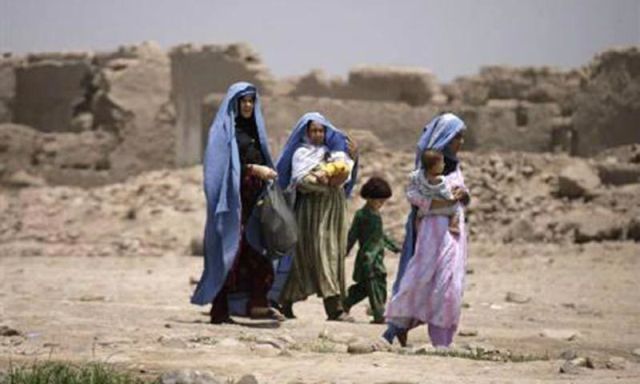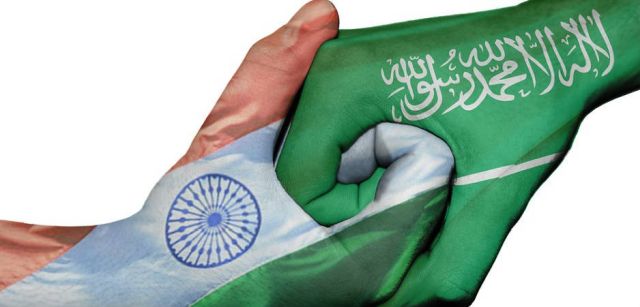
by Editor | Sep 23, 2021 | Corporate, Opinions, Politics
Amid divided viewpoints on the Taliban takeover, India’s Afghan policy could impact its bilateral alliances in the Middle East
By SHAFEEQ RAHMAN
In the aftermath of the messy evacuation of US forces from Afghanistan and dethroning of an elected government by the Taliban, India has undergone a diplomatic row while its relations have been already soured with China and Pakistan.
New Delhi has invested heavily in Afghanistan to get the US and its allies’ support amid the disputes with neighboring countries specifically to combat the ambitions of China and its massive infrastructure investment in the region.
This chaotic withdrawal will eventually damage US credibility worldwide, chiefly in another conflict zone, the Middle East, where its troops are on the ground and which receives a large share of its arms exports. Subsequent developments after the Afghanistan fiasco could also affect India’s ties in the Middle East, a region where it has major commercial interests and is a source of petroleum imports.
At the outset of the Taliban takeover, Middle Eastern countries expressed a mixed response. India’s key trade partners Saudi Arabia and the United Arab Emirates, which were among only three countries that recognized the previous Taliban regime during 1996-2001, opted for a “wait and watch” policy.
Qatar, by hosting a Taliban political office in Doha, emerged as the main troubleshooter to break the logjam in the discussions of the peace agreement and finalizing the deal for the US withdrawal.
Turkey and Iran have close relations with the Taliban, so they were on the list of only six countries that had been invited for the ceremony marking the formation of the new Afghan government, although this has not happened.
New Delhi has moderate relations with Qatar but its commercial ties already have been strained with Iran and Turkey by political differences, deteriorating mainly after India blocked the import of crude oil from Iran under US pressure.
Israel, a key defense ally, and the Taliban can hardly hold diplomatic ties in the future as the Taliban spokesman has affirmed that their government is not willing to make an alliance with Israel.
Moreover, the US after the Afghanistan experience may consider minimizing its military interference in the Middle East, reflected with the changed behavior toward Saudi Arabia by pulling out the missile defense system, unveiling declassified FBI documents on Riyadh’s connections to the attacks of September 11, 2001, and postponing a visit by US Defense Secretary Lloyd Austin.
Such diplomatic transitions will create a vacuum that will provide opportunities to China, Iran and Turkey, which will ultimately trivialize India’s commercial interests in the region.
Amid such divided viewpoints, India’s Afghan policy could definitively impact its bilateral alliances in the Middle East.
New Delhi has two options: recognizing the Taliban interim government and continuing an aggressive approach against the Taliban as an extremist group. The first option could worsen its relations with Israel and other countries that signed the Abraham Accords, whereas the second could further strain ties with Turkey and Iran, and also with Qatar to some extent.
India has so far maintained a distance from the Taliban except for a meeting in Qatar about the safe evacuation of its nationals. However, India has discussed its concern about rising anti-India activities in Afghanistan with prominent Gulf allies Saudi Arabia, the UAE and Bahrain, and also with Qatar.
Saudi Arabia’s foreign minister, Prince Faisal bin Farhan Al Saud, has visited New Delhi to hold a detailed discussion about security and Afghanistan. Expression of mutual concern by Gulf partners on Afghanistan’s development indicates that New Delhi can play a bigger role in both regions.
The demise of the Ashraf Ghani government is a huge commercial setback for India, which has invested in around 500 projects in Afghanistan including the Salma Dam and the parliament building. Of total bilateral aid, India has the highest share, at around 63% of total disbursement in Afghanistan.
To protect its interests, India must actively engage with all stakeholders without bowing to any external pressure. The Middle East has enormous commercial potential where India needs to make a comprehensive outreach without depending on relations with other countries.
By partnering with Gulf allies that also expect the Taliban regime could pose ideological challenges for them, India can deal with the diplomatic crisis. To safeguard commercial benefits, India can directly involve the Taliban while their arch-rivals are neutralizing their relations with the new interim government, even extending the financial aid for the recovery of Afghanistan.
India must respond positively to the call of senior Taliban leader Sher Mohammad Abbas Stanekzai who said their regime intends to continue the commercial and political relations with India as they were during the Ghani government.
Shafeeq Rahman is a New Delhi-based researcher, this column first appeared in Asia Times on 21, 2021.

by admin | May 25, 2021 | Muslim World
 Baghdad : Iraqi Prime Minister Adel Abdul Mahdi on Wednesday held a phone call with Saudi King Salman bin Abdulaziz Al Saud over means to promote bilateral ties and cooperation in various fields, Abdul Mahdi’s office said.
Baghdad : Iraqi Prime Minister Adel Abdul Mahdi on Wednesday held a phone call with Saudi King Salman bin Abdulaziz Al Saud over means to promote bilateral ties and cooperation in various fields, Abdul Mahdi’s office said.
The office said in a statement that Abdul Mahdi received a telephone call from Saudi king in which he discussed “expanding relations of cooperation between the two countries in all fields and enhance chances of security and stability in the (Middle East) region.”
Abdul Mahdi also said that he is looking forward to more cooperation in trade and oil fields, and a relation of partnership that serves the two peoples and bolsters stability and security of the region, the statement added.
The Saudi king reaffirmed Saudi Arabia’s support to Iraq and its keenness for Iraq’s stability and prosperity, the statement said, according to Xinhua news agency.
Relations between Iraq and Saudi Arabia improved in 2016 when Saudi reopened its embassy in Baghdad after Iraq’s invasion of its neighbouring Kuwait in August 1990.
On February 25, 2017, Saudi Minister of State for Foreign Affairs Adel al-Jubeir visited Iraq, the first for a Saudi foreign minister since 1990.
Bilateral relations have improved immensely as both countries have close historical, linguistic, cultural and geographic ties as well as their willingness for potential future cooperation.
—IANS

by admin | May 25, 2021 | Business, Economy, Investing, Markets, News, SMEs
 New Delhi : The Union Cabinet, chaired by Prime Minister Narendra Modi, on Wednesday approved the signing of three Memorandums of Understanding (MoUs) with Saudi Arabia for strengthening cooperation in the fields of tourism, customs and investment.
New Delhi : The Union Cabinet, chaired by Prime Minister Narendra Modi, on Wednesday approved the signing of three Memorandums of Understanding (MoUs) with Saudi Arabia for strengthening cooperation in the fields of tourism, customs and investment.
The MoU would facilitate sharing information and expertise in tourism development, hotels, resorts and tourist accommodation facilities, tourism data and statistics, events and other tourism activities.
Saudi Arabia is one of the potential tourist markets for India from Middle East.
Another MoU is on establishing a mechanism for making investment in infrastructure in India, according to an official release.
The MoU will be a step forward in engaging with the institutions of Saudi Arabia to attract a potential investment into the infrastructure sector in the country.
It will lead to boosting infrastructure development in the country, creation of more jobs, growth of ancillary industries/ sectors which will lead to growth in GDP and overall economic prosperity.
The third MoU pertains to cooperation and mutual assistance in customs matters, said the release.
The Agreement will help in making available reliable, quick and cost-effective information and intelligence for the prevention and investigation of customs offences and apprehending of customs offenders.
The MoUs between the two countries are likely to be signed during the Saudi Crown Prince Mohammed bin Salman bin Abdulaziz Al Saud’s visit to India next week.
—IANS

by admin | May 25, 2021 | Muslim World
 Geneva : The United Nations Relief and Works Agency for Palestine Refugees (UNWRA) has launched an appeal for $1.2 billion to fund vital services and life-saving aid for 5.4 million Palestinian refugees in Gaza, West Bank and across the Middle East.
Geneva : The United Nations Relief and Works Agency for Palestine Refugees (UNWRA) has launched an appeal for $1.2 billion to fund vital services and life-saving aid for 5.4 million Palestinian refugees in Gaza, West Bank and across the Middle East.
Speaking in Geneva on Tuesday, UNRWA Commissioner-General Pierre Krähenbühl explained that people’s basic needs had worsened considerably since the turn of the century.
“We provide food assistance to a million people in Gaza, which is half of the Gaza population. UNRWA provides that food assistance every three months,” Krähenbühl explained.
“That is a figure the world should be shocked about, because in the year 2000, we used to provide food assistance to 80,000. So, we’ve moved from 80,000 people on our food assistance list to one million. Why? Because the whole dynamic of the conflict and the blockade has wiped out entire sectors of the Gaza economy,” he added.
The UNRWA chief warned that alarming and expanding problems affecting Palestine refugees in Gaza and the occupied West Bank, including East Jerusalem, as well as in Jordan, Lebanon and Syria, risk further destabilizing the Middle East. He praised the generosity of member states in supporting the agency’s work, following the withdrawal of funding by the United States, historically its biggest donor by far for decades.
—AB/UNA-OIC

by admin | May 25, 2021 | World
 Moscow : Russia will not attend the Warsaw Conference on the Middle East, to be organized by the United States and Poland on February 13-14, as the event agenda failed to cover all problems of the region, particularly the Palestinian cause.
Moscow : Russia will not attend the Warsaw Conference on the Middle East, to be organized by the United States and Poland on February 13-14, as the event agenda failed to cover all problems of the region, particularly the Palestinian cause.
“We perceive with concern the continued US attempts to impose its unilateral geopolitical interests through initiatives presented as the opinion of the entire international community,” the Russian Foreign Ministry said in a statement on Tuesday.
“Following a thorough analysis of the provisional agenda and program of this conference provided by the organizers, Russia has decided not to attend,” it said.
The ministry complained that the Warsaw conference will not cover basic problems in the Middle East, particularly the Arab-Israeli conflict and its core element, the Palestinian issue. It added that the meeting has been arranged “hastily and behind closed doors,” without due regard for the opinions of influential states in the region and beyond.
Also in the statement, Russia underlined the need to find compromise solutions to problems with the help of the United Nations and based on international law instead of promoting unilateral approaches.
—AB/UNA-OIC





